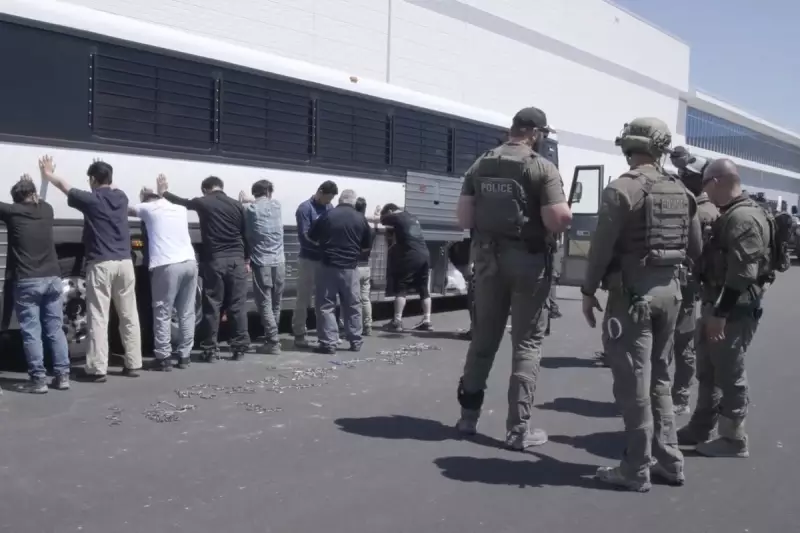
In a significant development following a major US immigration enforcement action, some of the more than 300 South Korean workers detained at a Hyundai manufacturing site in Georgia have now returned to their American jobs.
The September Raid and Its Immediate Aftermath
The incident unfolded on 4 September 2025, when US Immigration and Customs Enforcement (ICE) agents conducted a large-scale raid at the sprawling Hyundai Motor Group electric vehicle manufacturing site near Savannah, Georgia. The operation resulted in the detention of 475 workers, the majority of whom were South Korean nationals.
US officials stated the workers had entered the United States with visas that had expired or under a visa waiver programme that explicitly prohibited them from working. The raid, which involved some workers being shown in video footage shackled in chains, prompted an immediate and forceful reaction from South Korea, a key US ally.
The detained workers spent a week at a Georgia detention centre before the South Korean government successfully negotiated their release and arranged flights home. The event caused outrage and feelings of betrayal in South Korea, which has pledged hundreds of billions of dollars in American investments.
Return to Work and Plant Operations
Two months after the raid, the situation has evolved. The battery plant's operator, HL-GA Battery Co.—a joint venture between Hyundai and LG Energy Solution—confirmed on Thursday 13 November 2025 that construction has resumed.
In a public statement, the company announced work had restarted with a mixture of new and returning personnel. The company expressed its gratitude to the US and South Korean governments, as well as Georgia officials, “for their collaboration in supporting a smooth and timely return.”
An HL-GA Battery spokesperson, Mary Beth Kennedy, confirmed to The Associated Press that some of the returning workers were among those detained in September, though she did not specify an exact number. The company reaffirmed that the $7.6 billion plant remains on track to start production in the first half of 2026.
Diplomatic Fallout and Worker Hesitancy
The raid had significant diplomatic repercussions. The South Korean government demanded improvements to the US visa system for its skilled workers. Last month, the South Korean Foreign Ministry announced that US officials had agreed to allow South Korean workers on short-term visas or a visa waiver programme to assist in building industrial sites in America.
However, not all workers are eager to return. Kihwan Kim, president of the Federation of Korean Associations for the Southeast US, revealed that some of those caught in the raid are hesitant to come back. “They don’t have to come to the United States to work after that kind of humiliation,” Kim said. “They can go to other countries.”
Contrastingly, Jongwon Lee, an attorney in metro Atlanta, has firsthand knowledge of at least two Korean nationals planning to return after the US State Department confirmed their B-1 business visitor visas were still valid.
The political response was mixed. Former US President Donald Trump initially defended the raid in September, stating the workers “were here illegally.” However, during an October visit to Seoul, he appeared to contradict this stance, saying, “I was opposed to getting them out.”





